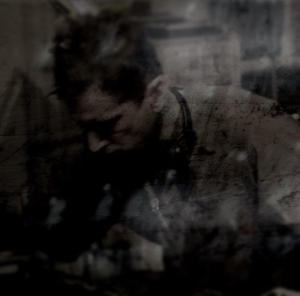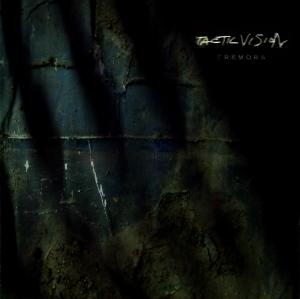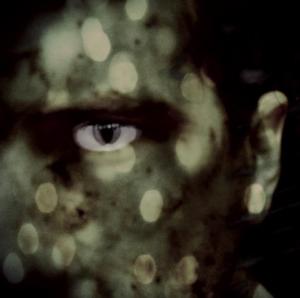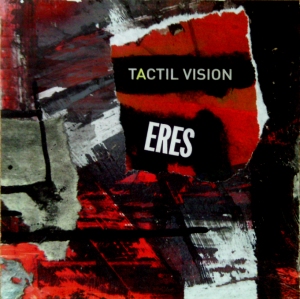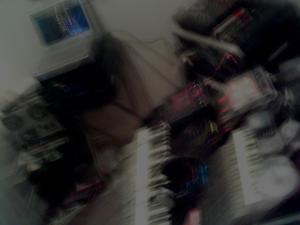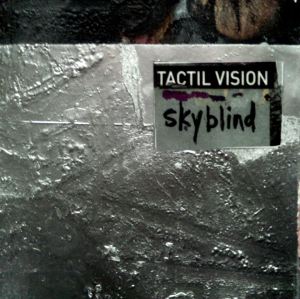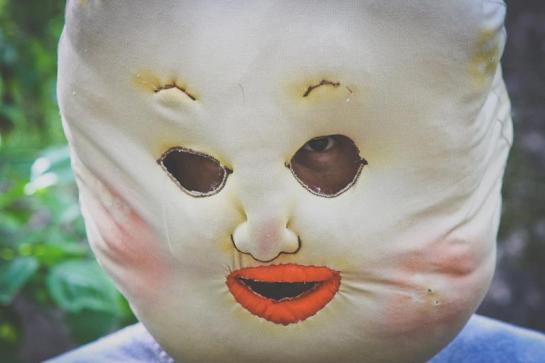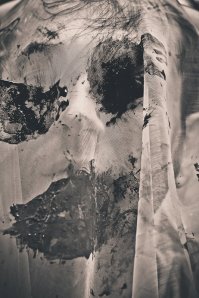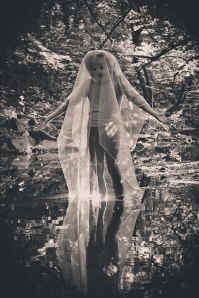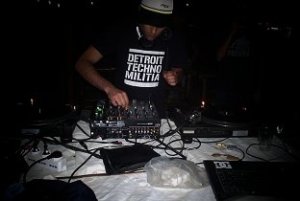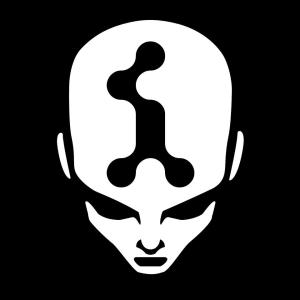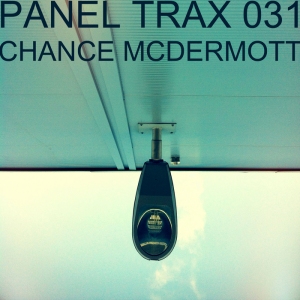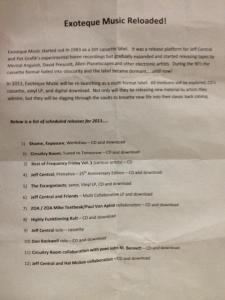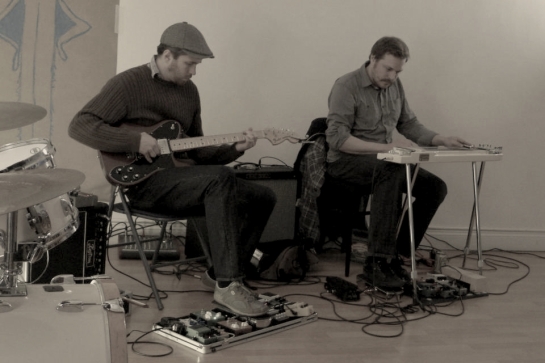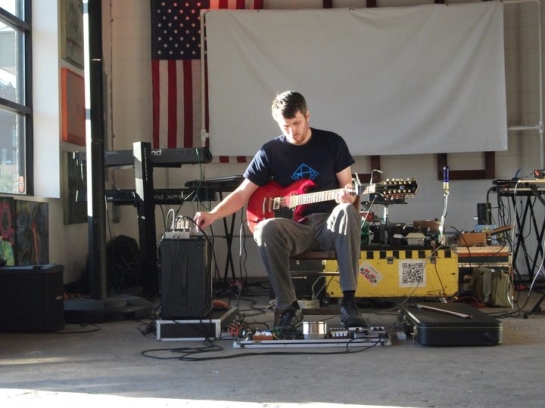
I could not be more excited to share this interview with the two musicians, Mollie Wells and Casey Immel-Brown, that form the Columbus, OH based electronic music outfit FUNERALS. It comes on the heels of these two musicians continuing their consistent production and mix work in town and around the United States. In the past few years, they have garnered a great deal of respect around the country and world for their ability to breath life into the areas in-between genre formulas. I know I enjoy their production and mix work for its ability to put together diverse strands of music thought into a new concoction. When I started my project a year ago, I held it as one of my goals to have a conversation with them to share it with you all. I couldn’t imagine that I would be in a position to share an interview with you all and have them playing the BLUR benefit show this weekend at 400 W Rich with all proceeds from the door going to the Columbus, Oh based experimental art/music non-profit The Fuse Factory (More Info on logistics and artist line up HERE). Call me sentimental, but my dreams with the Local Autonomy project are centered around sharing ideas, music, and a space we all can call our own. I feel this interview definitely contributes to these goals and our common dialogue by delving into issues of social justice, social media, and their creative process. Specifically, I think its so important to think about what Mollie and Casey had to say about the role our community can play in pushing a more equitable space for all genders, races, sexualities, religions, ages to find common ground. I hope you enjoy the interview as much as I enjoyed the conversation I had with them.
Interview:
LA: What role did music play in each of your lives growing up? How did each of you become musicians?
MOLLIE: Music has always been a huge part of my life. I started singing at a really early age, used to put on these performances for my mom where I’d dance and sing along to Michael Jackson’s Thriller. I can remember making these tapes in early grade school, with one of those Playskool tape recorders, do you remember those? I’d make up songs, or sing parts of Disney songs I liked, and beat the ground with a baton for percussion. My biggest dream back then was to play Ariel in a stage adaptation of The Little Mermaid. Actually, I’m not totally positive that’s not still my dream…I often spend hours at a stretch squealing “Part of Your World” at our cat. No shame.
Anyway, I did all the usual music stuff in school: Choir, band, jazz band, some silly musical theatre. At some point around 7th grade, when I started getting into punk and grunge, whatever the hell was happening then, I had this sudden realization that I could actually be in a band. So I started forming them, one little thing after another, until finally they became increasingly more…real, I guess? I moved to New York for a bit, spent most of my early 20s touring, then shifted into writing about music and teaching myself electronic stuff. So it’s been a pretty constant and well-defined path for me.
CASEY: It was one of those things that was always around when I was growing up. My parents never had like a crazy encyclopedic music collection or anything. They had really specific, strong, but varied musical tastes. So I was exposed to a lot of music growing up, but not a ton of the really, really classic things that a lot of people of our generation would’ve had their parents listen to. When I was really young my parents got into Windam Hill records stuff, so I had a lot of exposure to early New Age. Kind of the pre-Yanni era, when it was all acoustic guitar and piano, with occasional chamber groups. I’ve never really thought about it, but I’m sure some of the minimalism of that stuck with me. Other than that they listened to a lot of somewhat obscure folk and classical stuff, with kind of a weird smattering of contemporary stuff that they latched onto for whatever reason. Particularly Dire Straits and Tears for Fears, which I can’t really blame them for I suppose… There were also always instruments around, and I was always messing around with them. Eventually I started trying to learn my mom’s guitar, and I became obsessed enough with it that they bought me a cheap Aria Pro-II strat copy. From then on I was just always working on playing and writing music. From the age of like 11 or 12 it was just the only thing I ever wanted to do. Oddly enough, both Mollie and I played French Horn in school. We probably both had the inclination to choose the most unusual instrument that was available to us in that context. Though I don’t think I ever did as much with it as I wish I did, simply because those things are annoying as hell to walk home with.

LA: What music scenes did each of you grow up in? How did these scenes influence how you look at music communities and the art of making music?
MOLLIE: For me, the scenes I grew up in are divided into distinct phases. There was the early-mid high school phase where I was sort of constructing a reality; I grew up in a miniscule town, so there wasn’t much in the way of underground culture. I was a weird kid, chronically haunted by what I know now is OCD and anxiety, but back then, I just thought I was a misfit. I didn’t relate to the normal kids, I guess, so I ended up hanging out with the only punks that existed there, who were really just goths, and really just mall-goths. So anything I knew about underground culture, I knew only from those kids, whatever magazines I could get my hands on and 120 Minutes. I saw 1991: The Year Punk Broke when I was 14, and I wanted desperately to live in that world, so I spent a lot of time listening to Sonic Youth, Hole, Babes in Toyland, then stuff like Portishead and Elastica and Cibo Matto later. It was just what managed to trickle into my limited purview at the time.
But around 17 or 18, once I left that town, moved to New York then back to Columbus, I was exposed to the reality of all that. I dated this guy who went to Bard College, and he got me into riot grrrl, which filtered into hardcore and eventually the sort of early 2000s synth-punk/post-hardcore stuff. That’s where I feel like I really grew up, because that’s where I learned to be not only a musician but a thoughtful, politically minded, community-oriented person. It was from those scenes that I started touring and really making music on a larger public scale, and those years definitely set the stage for who I am now. And I think that, combined with the experience of being a kid cobbling together pieces of culture in a small town, has really influenced my perspective more than anything. On one hand, I still combine my personal affinities in ways that make sense to me, regardless of what makes sense to anyone else. It’s that small-town individualism. But on the other, I put a huge impetus on community and collaboration, because none of what we do — or what I’ve ever done — would be possible without it. None of us creates in a vacuum, and it’s just folly to play that game of keeping up with the Joneses. If we can’t honestly support our friends — and I mean, doing so with no benefit to us, completely selflessly — then I just feel like we’re all sort of working in vain. It becomes egoism, navel-gazing. It happens a lot right now. And it misses the point entirely.
CASEY: I grew up pretty solidly in the mid to late 90s hardcore scene in Columbus. At the time Columbus was actually one of the more major centers for DIY punk and hardcore, and was hugely involved in the merging of music and political activism. It probably can’t be overstated how much that framed how I look at things now, though I think lots of the lessons have really only started to become clear to me in retrospect as I’ve come into contact with people who didn’t grow up in an environment where everything was viewed as so naturally accessible. I don’t think it ever really occurred to me to view making music, putting out records, or putting on shows as something that was somehow done by a group of people separate from those who listen to the music, buy the records or go to the shows. It’s always seemed very clear to me that whatever it is you’re into, the people who are doing it can’t really be that much smarter or better than you are. And they certainly started out no less clueless than you might be. There was always just a very direct line for me from consuming art to making it, and I’m sure that came out of being so close to so many people who were not only doing both, but showing other people what they were doing. As much as we talk about the oversaturation of music now, like the idea that anyone can watch an Ableton tutorial and call themselves a producer, and as much as that’s true for sure, I still find myself shocked by just how many people really think of music as a hierarchical thing. So many people still have this weird view that there’s some singular “music business” to be broken into, and that there’s thing huge world that musicians, show promoters and labels are a part of that’s somehow separate and above them. And at the same time there’s this weird view that goes with that on the other side that if they just break into it, they’re instantly going to be making a great living off of the tracks they sell. I guess I was fortunate enough to have had that narrative completely dissected before I was old enough for it to have really sunk in with me on any level. Also, when it comes to politics and general social outlook, it was just always so natural for it to go hand in hand with music for me that I don’t think it ever occurred to me for it to be any other way. It always just made sense that you’d gravitate towards art and communities with shared values, and that if people are making art about the things that matter to them, then you’re going to be attracted to art produced by the people who care about the same things as you. There really is this huge divide for a lot of people when it comes to politics and music that never made sense to me at all. It’s something that affects your life just the same as romance or sex or aging or mental illness affects your life. Why in the world would one thing that you’re affected by and care about be somehow off the table for art? And obviously when you have a community of people who care about things, they’re going to what to act on the things they care about. But that attitude definitely came out of coming up in a time and place where there were as many ‘zines about politics as about music, and as many shows were benefits for some cause as weren’t.
LA: Why do you think it is important to build a music community where you are able to trust the person next to you at a show?
MOLLIE: Well, it’s kinda what I was saying earlier: None of us could do anything without a group of people getting our backs. I think the trouble you get into now is that as local scenes are broken down in favor of the internet and that sort of externally focused, constant self-branding and -curating, you don’t always know the specific politics or personal values of any person interacting with you. With both Casey and I being so political and coming from riot grrrl and hardcore, that can be sort of tough to reconcile. Not to get all Baudrillard or Unabomber on you, but technology and social media have essentially turned us all into constructs. I don’t know what you believe. I don’t your values. I only know what you’ve chosen to select as your particular brand. And in some cases, that’s totally fine. I mean, education and understanding starts with allowing multiple voices to speak their own truths. But when those truths stop being truths and start being branding messages, that’s when it gets tricky. That’s when it’s complicated knowing whether to trust someone. And I think that trust is really important; if you spent your high school years calling girls like me a slut and guys like Casey a faggot, and identify with electronic music now because it’s an extension of that bro-culture — even if we like the same producers, man, I’m sorry, I just can’t relate to you. Your shit has nothing to do with me. And I’m not so egotistical and ambitious that I’ll play a party founded on a basis of, like, rape jokes and cultural homogeny just because I want someone to see my name or respect me as a DJ. I just can’t get down with it.

LA: It seems to me that some groups of people are able to trust each other in our scene, but people in marginalized positions are left out. Do you think minority groups inadvertently become collateral damage in how we organize and promote shows in Columbus?
CASEY: I’m not sure how much as a straight, white dude I want to speak for any of those groups, cause obviously, that’s just as problematic some ways. Or at least, I don’t want to address this in such a way that it seems like I’m trying to speak for anyone who’s experience I haven’t had directly. But there are definitely areas where things can seem a bit alienating. I don’t wanna say it’s down to how some giant collective “we” organize across the board, because I feel like there are people out there, Scotty Niemet for instance, who are super conscious about access and inclusiveness. In general of course, that’s less of the rule than the exception. I still see tons of events promoted from this ridiculous kinda bro-centric standpoint, from ridiculous bikini girl flyers, to event descriptions that are directly addressing only straight dudes, or even big room events that push very specific themes of class and economic status. In some ways you can look at it as a function of not so much marketing towards specific demographics but as a part of the fantasy that someone is intending to create with an event. I’m not saying I have any problem at all with elements of fantasy or escapism either in event promotion, or in the actual events themselves. Not only is that something we personally use quite freely, but I think it’s an integral part of dance music creation and of the events themselves. And that includes the creation of an atmosphere that can be strongly sexual at times. However, I think it gets difficult when the world one is trying to create gets either exclusionary or downright threatening to substantial portions of your potential audience. This can get hard to discuss without an endless litany of caveats, but at the end of the day, it shouldn’t even come down to having to go out of your way to being open and inclusive, it should just be a matter of being responsive to the perspectives and reactions you’re garnering. In other words, you can have an event where the promotion, or even the atmosphere is in some ways straight up sexual, but if you’re doing it in such a way that there are people who are generally open and comfortable with sexuality who find what you’re doing threatening or uncomfortable, then you either have to start questioning your own concepts of what “sexual” mean, or you gotta start looking at your own ability to execute your vision successfully. Likewise, if the only way you can think to create a “professional” or “exotic” atmosphere is to put up a bunch of Louis Vuitton monographs, then you gotta either look at how you view fashion in relation to economic class, or you need to realize that you have fucking terrible, boring taste in fashion and don’t understand that there does in fact exist things that are stylish that aren’t also symbols of crass consumerism and status symbols for the ostentatiously wealthy. You can say the same for a myriad of other things, not just related to gender, sexuality or class, but racism, xenophobia, imperialism, etc… Humans have a pretty unlimited capacity when it comes to being dickheads.
Let’s look at all of that far more directly. First off, the electronic and dance music scenes in Columbus have been relatively small for a while. If you’re into that stuff, chances are you’re actively looking for events to go to, and get pretty excited when you see something that is at all related to that universe. Anyone promoting events is fundamentally doing it to a crowd that’s overwhelmingly friendly, open and eager to give the benefit of the doubt (well unless you’re talking about cover charges, but that’s a whole other enormous issue, and I’m on the side of most promoters with that one). No one is demanding that you meet a set of criteria written out by Andrea Dworkin working on the most pedantic day of her life. We want to find places where we can go and have a really good time without worrying about the shit we carry around the rest of our lives, and we’re really, really ready to assume that’s what your intentions are to create. Secondly, threat, discomfort and the general sense of being grossed the fuck out by something all come from prior experience. It’s a pretty Pavlovian set of reactions. And if you were to plot it out on a graph, you’d find that it’s directly proportional to, on one axis, intensity of the previous experience, and on the other axis, strength of association with things previously seen or lived. Humans are pretty simple that way. So it’s actually a pretty fucking specific kind of test you have to be failing to be alienating or offending anyone, or otherwise getting a strong negative reaction from multiple people in the way you promote or create events. First of all, you’ve got to be putting off something related to people’s prior experience. I mean, right there, you’re doing it fucking all wrong already. You’re already using some pretty trite, completely boring, uncreative reference points to begin with. Then, if those reference points people have seen a thousand times before are eliciting a strong negative response from multiple people, not only is it something that people have had less than positive experiences with, but they’re something that some people have had a really, really unpleasant history with. And in that case, then anyone who is reacting positively to it, is either completely oblivious to the lives of other people, or actively gets enjoyment from shit that makes other people suffer. In either case, the only people you’re pleasing are assholes. Not only do you have to be particularly uncreative, but you also have to not have the good sense to realize not to attempt to compensate for your lack of inventiveness by choosing super charged imagery. In any event I have zero sympathy for your boring, offensive ass.
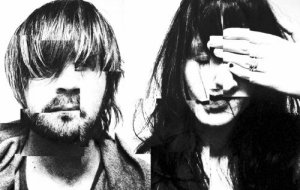
LA: How do you think we can foster trust between all races, genders, sexualities, classes, and other divisions at shows and in our scene?
CASEY: Again, like I said, 99% of the time it’s not really that hard. People want to have a positive experience. Listen, we’ve all been dumbasses. Especially someone like me, who grew up a straight white male, in a seriously misogynistic, homophobic religious environment. Even meaning well, I had (and certainly still have) some pretty internalized fucked up viewpoints and reactions to things. Privilege and isolation make you pretty oblivious to other’s experiences… And to be totally fair, it’s hard to completely fault someone for being less immediately aware of suffering that doesn’t directly affect them then someone else who has to live that every day. And to some extent, in this society there are few, if any, of us who can really say that we’re not owners of some sort of privilege, even if we can consider ourselves oppressed on another level. In other words, our personal experiences and observations all contain some knowledge that a lot of other people may not have, and we are all ignorant to the experiences of others. With that in mind, so much comes down to basic interpersonal dialogue, and willingness on every side to make that dialogue happen. Most people who have gotten over biases, internalized prejudices, etc… have done so largely by being in situations where they said or did something problematic and had someone close to them there to say “yeah, that’s not ok, and here’s why”. For that to work though both sides have to be willing to not only have that conversation, but to have it on even terms. I think one of the other lessons I learned from growing up in hardcore was that a serious backlash against “PC” or whatever (though I hate that term so much), only really happened when things became about public “call outs” and using ideals for interpersonal and scene power plays, instead of as a means of further fostering learning and comfort for everyone. Being willing to listen with respect requires a loss of personal ego, and so does being willing to educate with respect. I think there is a difference now in that ego is almost taken for granted, and people aren’t as willing to admit ignorance to ANYTHING when they can jump online and feel like experts by reading the first sentence of each paragraph of a Wikipedia article, but I do also feel like once your ego gets you in trouble a couple of times you learn pretty quickly to actually listen. It’s like any other activism, you can try to win people over issue by issue as much as you want, but once you really start focusing on getting people to see each other as valid individuals, then the other stuff falls together way more easily.

NVR MND FUN FUN FUN Mix
Over the summer we did a t-shirt collab with NVR MND, and to go along with it we did a mix of techno, house and dance tracks from 1989-1994. Lots of classic tracks that anymore I tend to listen to here and there, but rarely all together in one group. But pulling all these tracks at once, I was reminded of just how focused on politics and social issues the early rave scene really was. The past two or three years there’s been a revival of lots of the aesthetics of that era, and along with baggy tie-dye and yin-yangs, you’ve suddenly started seeing people talk about “PLUR-vibes” all over the place, but so far only as a callback to that era. It is important to remember that so much of what we do really was based on that notion of “peace, love, unity and respect”, and that if we want these parties and events to be really free and without all sorts of constraints, you really have to start with that attitude of mutual respect for everyone around you. It’s actually a very natural place for dance music to be. I mean, the music itself is a combination of so many diverse elements and cultural reference points, and the paths that find people getting into the culture of dance music are so insanely varied, that it’s only natural that once we start paying attention to each other we can’t help but be confronted with experiences and ideas that are truly new to all of us. It’s just a matter of letting go of your ego enough to learn from it.
LA: Switching gears to explore your views on your art, what is your definition of success for your music? Put another way, what do each of you hope to achieve with your art?
CASEY: For me it’s really nothing more complicated than just making something I actually like. Something I’d want to listen to. At any given moment there might be a detailed answer, but ultimately that’s what it comes down to, and it’s honestly a tall enough order to keep me working hard pretty constantly. When it comes to individual things there might be some more explicit goal, but there’s not one giant sweeping agenda, or even career path that I ever have in mind for anything. I think that music is too all encompassing for something like that. It’s just a matter of at any given moment taking whatever I’m inspired by, interested in or feeling strongly about otherwise and responding to that in a way that produces something I like. For better or worse, I’m not one of those people who babies their work once they’re done with it. I never really feel that, no matter how much I might like something I do, I have to accomplish XYZ with it, and it has to be then put in glass to be gazed upon for all time. Sure I want people to hear our stuff, and I’d love to be at the point where we’re doing enough with our work that I don’t have to have a day job to support making music, but beyond that, when something is done I’m almost always just interested in whatever I’m going to make next. So I guess that’s the best answer, success is whatever keeps me making things I like for as long as possible. In a weird way, now that there’s no longer a really solid model for revenue generation without music, it’s almost easier to keep that at front and center. We all know that in terms of business we have to make it up as we go anyway, and that actually gives you a freedom to focus on doing things in a way that keeps you inspired.
LA: This raises an interesting issue I have thought a lot about. Today, we have so many platforms for DIY music sharing and scene building. Yet, it seems harder to break through the white noise of hype and find a meaningful metric of success for music projects. Do you think we have lost anything in the social media revolution? Was easier to create and share music before?
MOLLIE: I think we’ve both lost and gained. I did an interview probably 10 years ago, and a similar question came up: How has the internet affected your ability to not only make music, but be a musician? And my answer then was only slightly different than it will be now: It’s been, and always will be, both blessing and curse.
On the one hand, music sharing and scene building are soulmates with current technology. From the early 2000s to now, some of the most valuable connections I’ve made have been internet-based. We’re able to create almost labyrinthine communities of people all over the world, and stay in constant contact with them. We can stream live shows from our bedroom. We can make a song and get it to you 20 minutes. We can interact and react, real time, every day. Our closest friends can dot the continents, but we’re as close as if they were right here. The discovery is endless, and that idea is incredibly exciting.
The trouble, of course, is that it’s too much. Being able to interact and disseminate content on a minute-to-minute basis isn’t necessarily good for art. Since everyone else is creating new stuff on the constant — and, consequently, choking up social media to the point that we don’t notice anything — there’s this social pressure to always have fresh material, always have something share, always be on the cusp of whatever is happening. And in order to make solid, inspired music, you need time to think. You need time to try things. You need time to be. The constant Herculean force of social media doesn’t allow for that, if you get yourself too deep into it, because the minute you stop publicly moving forward, the minute people forget. Thank Facebook algorithms for that.

The other issue goes back to my whole thing with external perception and branding. For one, when you’re constantly sharing new content, you’re constantly getting feedback. Sometimes that’s great; it can help you define what you’re trying to do or hear things through another set of ears. But think of it in terms of, like, a Creative Writing MFA. One of the greatest complaints about those programs is that the workshops, however valuable, cajole the art out of artists and streamline unique voices into one big mass of same-sounding literary fiction. This happens with music too. It’s not malicious, it just…happens. What gets chosen by any tastemaker is almost always what feels familiar to them, or in the case of music blogs, what’ll boost page views. Publications have always been that way, but now those judgments are instant. You’re judged before you’ve even had a chance to judge yourself. So when you’re sharing new things and getting into this endless feedback loop, you stop hearing your songs through your ears — you hear them through everyone else’s, simply because it’s seems like the only way to get enough people to notice that it cuts through the white noise. The medium becomes the message. And that’s no way to make song. It’s miserable. It’s impossible.
And similarly, because of this, we’re all marketing experts now. Various sharing platforms and social media sites have allowed us access to metrics so we can deepen that expertise. So we’re not just judging that work based on literal feedback we’re getting — we’re judging it based on a set of metrics that, to be honest, any legit marketing professional will tell you are complete folly when it comes to art. You stop creating based on what you like and focus on how many Soundcloud plays a certain type of track gets, what your CTR is for an ad on Facebook, how many likes a particular post generates, how much engagement you can force through Twitter. While that can all be helpful for people eventually, it’s simply not helpful when you’re trying to figure yourself out as an artist. It’s not reality. It does not, in almost every case, accurately display public engagement or future sales. There’s just too many variables at play, not least of which is how people are getting your music in the first place. 5,000 Soundcloud plays doesn’t translate to true real-world interest always; it translates to your efficacy with that particular platform. And I don’t know what the solution to any of this is…only that it keeps too many solid artists concerned with arbitrary metrics that somehow convince them that they’re not good enough…or worse, that they can tour on those 5,000 Soundcloud plays and see a similar real-world response. It just doesn’t always translate that way. But then we get into a question of, what is the current reality: real world or internet metrics? How do we define success: money or plays? What does anything mean? And I can’t even begin to answer that.
There’s also something to be said for the self-serving nature of all of this. How many people comment on someone’s Soundcloud track not because they legitimately like it, but because they want other people to notice their page? How many artists share another artist’s track in hopes the original artist will notice them? Certainly we’ve all done those things. Certainly we’re all strategic and savvy in that way. Hopefully, more often than not it comes from a genuine place and can forge genuine connections. But…how can we be sure? Social media ultimately serves no one but ourselves. I can’t remember who said it, but I read some pithy little observation that the most interesting word to every human is ‘I’. If you break it down, get real honest about it — in terms of yourself, too, because none of us escape this tendency, not really — then it leads to a lot of skepticism with social media. Why are you throwing shit into the Twitter ether, if not to have the mirror shone back at you, if not to be validated by other people’s interest in you? I’m no better. We all do it. I’m just trying to be real fucking honest about it and wish more people would.
I’m getting particularly verbose with this question, but I can tell you this: I liked it better when I had only Myspace plays and show attendance to guide me. I liked it better when the numbers were secondary to the artists, at least at first. You didn’t worry as much, and people were generally more willing to take a chance on new bands because they weren’t deterred by their only having, like, 250 Facebook likes. You just made your stuff and hoped for the best. You interacted with people with slightly less self-consciousness. Or maybe that was just me. I don’t know. But if you don’t think Baudrillard, Foucault and McLuhan had it right all along…well, I’d like to live in your world for awhile, because I can’t stop thinking this is all about to explode into some epic demise wherein art and inspiration is so devalued, the best of us just give up trying.

LA: Your most recent Hypermotion EP is the first extended release that showcases the most recent articulation of the FUNERALS sound. How did you get to this point creatively with the FUNERALS sound?
Casey: Really just letting go. We’ve been at this long enough on various levels that when we sit down with a project it’s really automatic to go at it from the standpoint that we’re doing this as part of a predefined concept. When you’re just starting making music, it’s really easy to let it happen and have whatever you’re putting out be your sound, I think because you look at your abilities and goals in a much more narrow sort of way. When you learn what you’re doing more and more, and start to see music as the thing you’re going to be doing, it’s easy to get into a thing where ironically the expansion of possibilities puts limits on each new project or work you attempt. It becomes a thing where “this is my dark electronic project.” Or “this is my deep house project” or “my gamelan inspired minimal project”. I mean, it’s really, really easy to think in those terms, and to then be working from the idea that every track has to sound a certain way to fit in with what you’re attempting, and everything else is just for some future project or release. Those limitations can definitely be healthy and helpful at times, but it’s very easy to get so focused on them that you’re not really just getting excited by sound and reacting. The biggest change with this last release, and with a lot of the remixes and mixes we’ve been doing lately, is that we’ve really taken a step back and said “fuck it, let’s just have fun”. We don’t want to be all over the place in terms of sound, but we’re just letting the cohesion come out a lot more instinctively from the natural tendencies we have as musicians, and from what is musically and creatively exciting us at the moment. Some of that definitely comes from a certain level of confidence in the production as well. It’s easy with electronic music to get very intimidated by the pressures of producing something that’s really accomplished technically speaking, and again, that I think can make you afraid to fully let go and just let things happen as they want to. I think there have been times in the past where you could hear the struggle coming through in tracks. Maybe other people couldn’t hear it, but I know we certainly could anyway, and I think that we’re at a point right now where the fluidity that comes from really enjoying what you’re doing is back in the sound, and I think it’s shaped where we are more than any other element.
LA: You often discuss how your recordings and live sets are able to provide an escape for listeners to another place. Where do you think your most recent sound takes listeners?
CASEY: Our standard joke answer is usually “to the place where all their drugs have just started to kick in”. That said, I think it’s actually hard to describe a singular place. We prefer the vague notion of “somewhere else”. I mean, if we’re trying to make a track with 4am in Beirut in mind, that really does nothing for someone that actually IS at a club in Beirut at 4am. Not to mention, when you try and get too detailed with evoking a singular place, the only place that usually gets evoked is the Starbucks in your local Barnes & Noble. Besides, we tend to use tons of reference points all over the place, almost as shortcuts to certain atmospheres and feelings. That said, I think we were thinking a lot about an almost cartoon version of 90s house and techno with a lot of Hypermotion. But that almost worked more like a more literal version of Eno’s Oblique Strategies. Kind of an arbitrary point for starting off or switching gears. Like, there’s a spot on the record where we go from beats built around samples from Polynesian drums into a sudden amen break, and it’s such a 90s thing to do, but the effect I think is way fuzzier than that. You get a hint of it, but it’s vague enough for someone to put onto it whatever they want it to be at that moment. There’s a lot of sonic density in parts of Hypermotion that really has to do with wanting to blur atmospheres together without making anything so totally overt. In it’s way that’s one of the really, really nice things about working for the dancefloor, because those atmosphere’s and environments get superimposed on so many arbitrary contexts, and do so in such real time that it’s really about taking wherever you are, and just twisting it into something else. Making a warehouse feel a bit greyer and smokier. Making you a little less aware of what time it is or the fact that you’re going to have to go home eventually. Differences in rooms alone make certain things pop and mute other elements. Add in specifics of place, and potentially altered states of consciousness, and the result is maybe more of a momentary Rorschach Test than anything else. For me personally, it’s also a little hard to answer that question once something is finished, because I’m so instantly on to whatever we’re working on next, so things become really colored in my mind by how my perspective has shifted. I feel like we’ve thought a lot more about warehouse reverb and tribal beats lately, but that’s not really as prominent in where we were a few months ago as I might think now, so I don’t know.
LA: Mollie, how has the Hemingway Quote, “All you have to do is write one true sentence” influenced your creation of music?
MOLLIE: Oh man. I love this. Can you call this piece The Local Autonomy Interview Wherein Mollie Wells Gets To Be A Pedantic Intellectual? Please? Ha!
I feel like I need to preface this by saying I’m not a Hemingway devotee. There’s a connotation to that cliche that just doesn’t jibe with my worldview, but I recently read the original A Moveable Feast (before the newer, more fiercely edited version) and was really struck by this idea. That all art starts with one true thing. Truth, for me, in this context, is work that isn’t externally focused or compromised. Something in which you don’t notice the presence of the artist; you’re not paying to the man behind the curtain. You’re experiencing the thing for the thing, completely unaware of how the thing came to be.
The idea, basically, is this: If art both forces you into and takes you out of yourself, you (as the consumer, not the artist) need to be the only person present in the exchange for that moment. Do you know what I mean? The reason I hate Philip Roth is that he Philip Roths all over everything. I’m always aware that I’m reading him; he never steps away long enough for me to relate to what he’s trying to say. Musically, I feel the same way about commercial American dubstep. So many of those producers are too self-obsessed to do anything but throw a dozen signature markers on one track, so all I hear is the effort they made, not the song itself.
Anyway, it’s a weird impetus to put on dance music, but I think it’s valid. When you think of your favorite producer, of the first experience you had with them, it’s never that you thought “God, I love how much I can tell this is Dubbel Dutch!” Maybe later you think that, on your fourth or fifth listen, you start catching those cues and hearing how the song works on a technical level. But your first reaction to your favorite song is always visceral. You react to the inherent something about it, whatever that something is. It’s like the artist said “Here, you listen to this, I’m gonna grab a drink, I’ll come back when you’re through and we’ll chat.” You know? I mention Dubbel Dutch specifically, because I had that experience with “Throwback”. It’s a very Dubbel Dutch track, I mean the thing sounds so much like him, but when I first heard it, all I could think about was how I wanted to hear it again. It made me purely, unequivocally happy, and in that moment, I didn’t give a fuck who wrote it or how it worked. I just wanted to hear it one more.
And all of that, I think, starts with one true thing. It’s making a beat or melody or sound or whatever that feels so utterly right by no one’s standards but your own. It’s creating something that forges an emotional connection but does do by earning it, not by tugging at sentimentality or some preconceived emotional idea. I try really hard to erase the effort from everything I create. I’m not always successful. In fact, to be honest, I’m not sure I’ve successfully started with the one true “sentence” — or if I have, I’ve fucked up the authenticity by the time the song is done. But if I wake up every morning with that goal, to just get one true whatever out of my head, then I’ve at least succeeded in that moment. The next goal becomes keeping it true. I’ll let you know when I get there.
(For the record, I now have Amerie’s “One Thing” in my head, and the sudden urge to watch that shitty Meryl Streep movie.)

LA: Casey, are there any artists or ideas that have shaped your views on the creation of music? Who or what are they and what affect do they have?
CASEY: I’ll try to answer this really, really quickly without thinking too much, because anytime you start thinking in terms of influences, it’s gonna open the floodgates. Going with whatever pops into my head first is probably gonna be most accurate anyway. My whole life I’ve loved Erik Satie, and a lot of the themes of both his work, and how he actually worked, seem to carry through to everything else I like. Like pretty much everyone else on earth, I gravitate towards his early piano stuff. Aside from how obviously atmospheric his work was, there’s something that’s always gotten me about how he combines simple repetition with these elongated melodic lines that manage create this incredible movement without you being able to pin down what exactly it is that’s causing things to shift. It’s only when you really sit down and try to play it that you realize how much every single note is actually doing, and how much you can accomplish simply by occasionally having a note or chord be just a tiny bit off. Joy Division were another huge, huge one for me when I was younger for a lot of the same reasons. The first time I heard Unknown Pleasures when I was 13 they became my favorite band instantly. A few months later I heard Closer for the first time, and whereas Unknown Pleasures had appealed to me because it sounded like a lot of what was already in my head, Closer really shocked me. I remember thinking at the time that it sounded like someone wrote these fully formed songs based around standard chord progressions and bass parts, added a bunch of accents and fills and things, and then removed the original chord progression and bass line, and just left you with all those extra bits standing on their own. Just accents and atmosphere with no skeleton to support them. That’s actually a huge thing that’s really had a massive effect on the way I’ve viewed making music ever since. I just really love that concept of taking out the backbone of a song, and letting everything just hang on the remaining scraps.
If you need more FUNERALS you can hook up with them on these fine social media outlets:
Facebook
FUNERALS Tumblr
Twitter
Soundcloud

